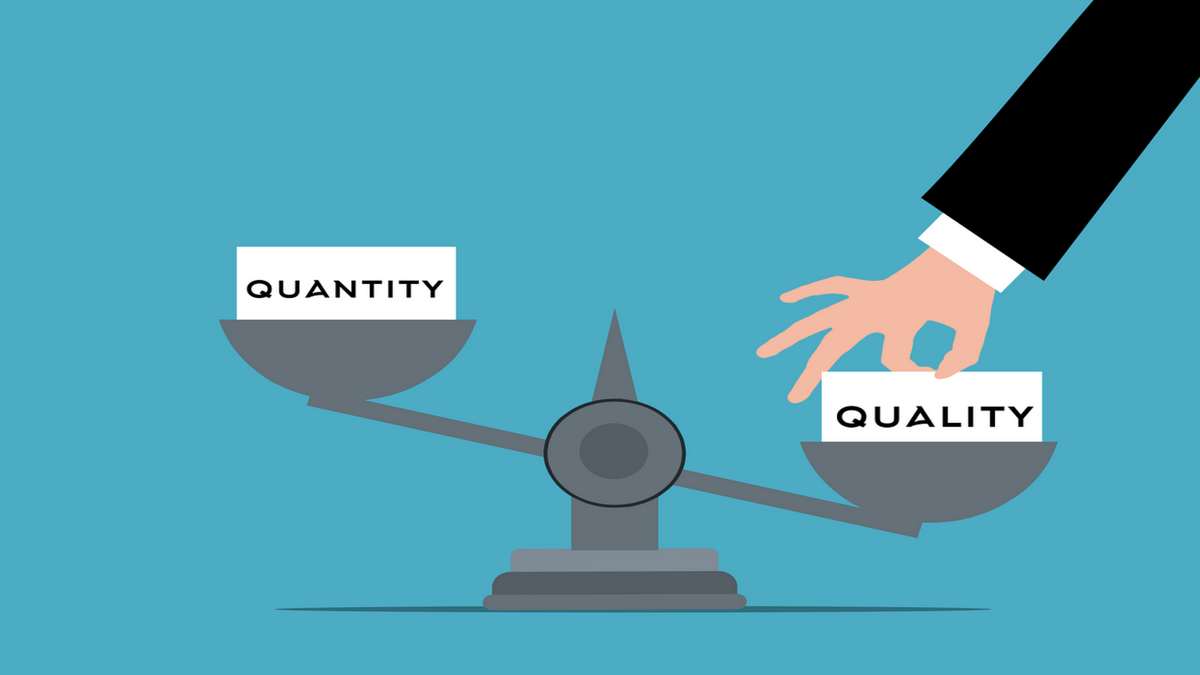
The world’s leading corporations must attribute much of their success and profitability to savvy business analysts who are highly skilled in analyzing data, recommending solutions, and building winning strategies. A business analyst’s work combines many tasks and challenges, meaning each day, a business analyst must tackle new data sets and find solutions to arising bottlenecks in the business operation.
Whether you are a school leaver or a professional, considering a business analyst career is smart. Top opportunities exist for business analytics graduates within some of the most reputable firms. The salaries are highly competitive, and the role and job description are far-reaching and impressive. In other words, business analysts will likely never slump into a daily rut because their job is impressively varied and diversified.
But what are your top skills to succeed as a business analyst? Do you have the aptitude? This article provides an in-depth job description and lists the responsibilities, core skills, and talents you need for a rewarding and prosperous career in business analytics.
What do business analysts do, and where do they work?
With data playing an increasingly central role in business decision-making, business and data analytics have become core disciplines corporations employ in their quest for success.
Business analysts examine current and past data to formulate growth strategies. Unlike data analysts, they also review past business practices, identifying operational patterns and gaps. They provide solutions, create innovations, and eliminate redundancies as part of their daily work.
Four business analysis methods shape the work of a business analyst:
- Descriptive analytics: examining past business operations
- Diagnostic analytics: identifying cause-and-effect patterns to identify problems and success factors
- Predictive analytics: combining historical data and statistical modeling to predict a company’s future operational successes and failures
- Prescriptive analytics: using existing data to map out operational models for the future to mitigate risks and optimize profitability
Using the above four methods, business analysts design and actualize sweeping business structures. Thus, they become drivers for business growth and profitability. Business efficiency also falls under the remit of business analysts, as does market analysis.
As corporations must adapt to changing market conditions, they rely on business analysts to chart their course and keep them rooted on a profitable path. Business analysts continually analyze emerging data to identify weaknesses and prescribe operational changes. They derive consequential insights, pinpoint data for optimum performance, and chart stakeholder success strategies.
Implementing digital growth pathways also ranks high on a business analyst’s task list. As a link between business and IT, business analysts evaluate a business’ digital requirements and craft data-driven technological solutions.
More and more organizations, large and small, hire business analysts to streamline operations and consolidate profitability. While in the past, generally, only large corporations hired them, small companies have recognized the return on investment of recruiting a business analyst. The disruptive nature of today’s market warrants the expertise business analysts offer, meaning job prospects are promising.
The U.S. Bureau of Labor Statistics forecasts 14%-growth in business analytics job prospects between 2020 and 2030. These figures translate into around 100,000 new jobs each year. The salaries are attractive, too, with the medium hourly rate at $42.14.
Job opportunities for business analysts are abundant in IT, insurance, finance, cybersecurity, government agencies, healthcare, business and professional consulting, marketing, market research, and social services.
Before looking at the top skills needed to become a sought-after business analyst, let’s take a look at the job responsibilities.
Job responsibilities
Business analysts work with internal teams and external contacts to investigate business performance, deliver insights, and formulate optimal strategies. The responsibilities fall within the following three areas:
- Data analysis
- Solution delivery and strategy creation
- Budgeting and implementation
Day-to-day, these overarching responsibilities translate into the following processes:
- Examining data to evaluate business performance and processes
- Identifying operational flaws
- Completing business needs analyses
- Crafting better models and high-ROI strategies
- Testing newly developed business models
- Managing and overseeing projects and teams
- Ensuring timely delivery
- Making budgetary forecasts for the implementation of the strategies
- Building and presenting data visualizations to record project evolution
- Liaising with staff, management, stakeholders, IT experts, and customers
- Continually overseeing business performance and operations to stay abreast of market developments
The complexity of the role demands extensive study, aptitude, and many core skills. Let’s look at the skillset that business analysts must bring to the table.
Top 15 core and technical skills of a business analyst
The skillset that business analysts need falls into two categories: traditional and technical skills. Within the conventional skill requirements, you have soft but essential expertise in communication, teamwork, and management, whereas technical skills include coding and data reporting.
Let’s look at all 15 skills in more detail.
Understanding core business and market principles and objectives
Business analysts must fully understand the principles and objectives of any company in any industry, including the market conditions and the specific business goals and targets. Equipped with this understanding, they propose and analyze data before recommending actions to optimize business performance and streamline operations.
When joining a company, business analytics professionals start by gathering and extracting essential information about the business and the broader market conditions. Only a profound understanding of these facets allows them to progress, execute their function, and complete their remit. Moreover, there are sites like hilvy.io that offer helpful insights and resources related to business, technology and more, that can surely help people to gain more knowledge and skills.
Excellent communication
Employing stellar oral and written communication is crucial for business analysts. They must be capable of presenting data clearly, thus allowing teams to implement new strategies and stakeholders to support them. Excellent listening skills are essential when communicating with staff, customers, management, and IT departments.
Sterling communication skills are necessary for all business analytics processes, including initial data analysis, diagnostic analytics, predictive and prescriptive analytics, and all collaborative processes with staff, clients, and management.
Outstanding communication goes hand in hand with good interpersonal skills, meaning business analysts must excel in all human interactions.
Critical thinking
Critical thinking is a prerequisite for business analytics professionals. They must apply it even before the initial analysis, namely when deciding what data to examine in the first instance. Distinguishing between data worth analyzing and irrelevant data also comes into play, as business analysts must know the difference and economize time and resources.
When examining collected data sets, they must be able to differentiate, draw conclusions, extract essential information, and compare and contrast them when necessary. Critical thinking is also indispensable when monitoring and reviewing evolving market conditions to assess the need for operational changes.
Analytical thinking
More linear and focused than critical thinking, analytical thinking allows business analysts to examine data and identify causes and effects. Excellent analytical thinking skills enable them to map out business operational pathways even in challenging market conditions or when resources are scarce. They can gather varying information sets, analyze them, and use the insights to make recommendations.
Analytical thinking also helps them keep up with the dynamic needs of the business, its staff, and its stakeholders through continuous business performance and market analysis.
Collaboration and people management
While business analysts spend a great deal of time examining data, they also need to collaborate continuously. From communicating data insights to management, outlining new strategies to staff teams, and communicating with technology providers and customers, business analysts dedicate much time to interacting with various stakeholders.
Outstanding management skills are indispensable in their work too, as they impact everyone participating in the everyday activities of a business. Daily, business analysts collaborate with partners on varying levels, including management, entry-level staff, heads of various departments, customers, partner corporations, and more.
Big-picture thinking combined with attention to detail
Business data analysis requires much attention to detail. But business analysts must maintain a clear view of the bigger picture and foresee the effects specific changes are likely to produce. Consequently, they must simultaneously act as developers and analysts, which requires significant experience and know-how.
Day-to-day, they must assemble detailed data and have the skills to translate the insights into winning and actionable business growth plans.
Problem-solving skills
Business analysts are problem solvers who combine analytical skills with logical thinking and strategy conceptualization. Whatever the business and market conditions, they must recommend a course that propels a business toward growth and increased profitability.
A creative and flexible mind is essential when tackling industry-specific problem sets and circumstances.
Budgeting and negotiating
Business analysts must negotiate with stakeholders at every stage of their work. They must assess the business needs and determine the way forward with management. Negotiation skills also come into play when performing cost-benefit analyses and crafting technological solutions.
Business analysts must also communicate budgeting recommendations to staff and management to win support for new business approaches.
Time management
Good time management plays a vital role in achieving business efficiency. In the broader context of business operations, business analysts must enshrine good time management in the day-to-day running of a business. In their work, they must display excellent time management skills and be capable of intelligent prioritization.
Decision-making skills
Not only must business analysts be capable of making good decisions, but they must also be able to communicate those decisions to staff and management. They start by analyzing the current business performance before designing new strategies where necessary. During these processes, they may devise several options, requiring them to choose the best to recommend to management.
At each stage of business strategy implementation, business analytics professionals must decide between various alternatives and be confident in choosing and proposing the top option.
The skills listed thus far feature prominently in many professions. During professional business analytics training, such as online master of business analytics by St Bonaventure University, candidates acquire the following technical business analytics skills:
Data collection and visualization
Gathering and analyzing data lies at the heart of business analytics. Top business analysts employ a wide range of data collection models and methods. They carefully select the best option to best address issues facing a company.
Once the data has been collected, analytics professionals create easy-to-understand visuals showing landmark insights and findings. Staff, stakeholders, and management can subsequently recognize underlying difficulties and embrace the proposed actions.
Statistical languages and programs
Although business analysts only spend some of their working hours writing code, they must still master statistical languages and programs for their data analytics work. The statistical language R is most commonly used for statistical analysis, while Python comes into play in general programming. The two languages combine multiple packages and libraries for analytics, data manipulation, wrangling, and visualization.
Business analysts use them to examine data, present it visually, and create business models. Other statistical programs every business analyst must be adept at using include Excel, Mathematica, SAS, SPSS, and Sage.
SQL and database
SQL is the database-coding language business analysts use to write queries. They begin by extracting data from the transaction database. They then analyze it before creating visualizations for staff and management.
Today’s business analysts use toolkits like MySQL database, Microsoft SQL Server, Oracle DB, and NoSQL databases to write data definitions and manipulation commands such as create, delete, insert, select, and update.
Report and dashboard creation
During business analytics studies, participants learn to master business intelligence tools to create reports and dashboards, allowing them to streamline decision-making processes. Experienced business analytics professionals use programs like PowerBI, QlikView, and Tableau.
Compiling and presenting reports
The data business analysts collect and the insights they derive from it are generally highly complex. Part of a business analyst’s remit is to transform this intricate knowledge into clear and easy-to-understand information. Any insights they draw from their work must emerge in concise, actionable reports that even the most non-technically minded stakeholders can follow.
Excellent presentation skills are necessary not only when providing insight but also when instructing teams on implementing new strategies.
These are the core skills every business analyst needs to succeed. When studying business analytics, participants acquire these skills while learning the principles of business and economics.
A strong aptitude for critical and analytical thinking, coding, mathematics, communication, management, and problem-solving will go a long way toward helping students master business analytics and graduate.
Business analyst personality traits
While any brainy person can learn skills and become a business analyst, certain personality traits are crucial not just for job success but also for job satisfaction.
Career Explorer surveyed nearly 10,000 working business analysts to identify common personality traits. Using Holland’s Codes, they found the following commonalities:
- Most business analysts are investigators. They enjoy analyzing situations rather than manual work and always display curiosity and independent thinking.
- The survey participants also proved enterprising. They are outstanding problem solvers and leaders. Their restless nature makes them take risks and see projects through from conception to realization.
- A smaller group emerged as conventional, loving detail, analysis, and firm structures.
To identify temperaments, participants took the Big Five test, with the following results:
- Most business analysts who participated in the survey scored highly for social responsibility.
- A large number of participants measured high in conscientiousness.
Both surveys portray business analysts as formidable intellectuals with excellent leadership skills, a passion for detail, and a deep sense of social responsibility.
What makes a business analyst great?
The best business analysts combine outstanding analytical skills with excellent communication and people skills. While business data analysis lies at the heart of their work, stakeholders, including staff, management, partners, and end users, must come first. Only a combination of stellar soft and technical skills will allow them to excel in their profession.
Day-to-day business analytics professionals investigate and assess business operations, identify problems, and design solutions. Throughout this process, they must bring along and support stakeholders while motivating them to make necessary improvements.
Final thoughts
While at first sight, business analytics may predominantly require intellectual prowess and a strong passion for IT and data, exceptional soft skills set great business analysts apart. Only outstanding communication, empathy, social responsibility, and motivational skills enable them to bring their initial analysis to a fruitful conclusion.
Nonetheless, if you want to embark on a career in business analytics, you need a good head for math and IT, plus a passion for statistics, facts, and figures. As a business analyst, you can be the difference between a successful and failing business, meaning this role is central to any corporation.
Current job prospects are excellent, especially in cybersecurity, business data analytics, agile, strategic business analysis, product ownership, and strategic business analysis. Today, small and medium-sized enterprises also hire business analysts to navigate challenging market conditions and optimize performance.
With around 100,000 new business analytics positions predicted annually for the coming decade, enrolling in a business analytics degree program is a smart move. And when you consider all the skills you acquire, you soon realize that they are highly transferable and actionable across multiple industries.
Perhaps the most exciting aspect of business analytics is its universal application, meaning you can work in many different industries and choose the one that takes your fancy.



